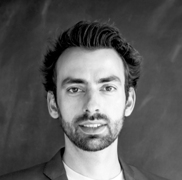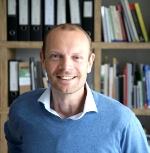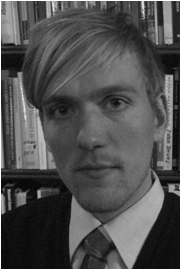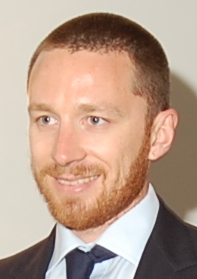2021-22 Alberte Agerskov
This year’s recipient is ALBERTE AGERSKOV who studied architecture at the Institute of Building and Culture at the Royal Danish Academy of Fine Arts in Copenhagen. She is embarking on a two-year Master of Fine Arts at Central St. Martin’s in London and will explore the border between art and architecture in the form of material studies, sculpture and painting.
2020-21 Benedicte Rahbek
Benedicte, who is Danish, is reading for a Master of Architecture at the Bartlett School of Architecture, University College London. Over the past four years, she has participated in field trips in France, Italy, Germany, Finland, Spain and Japan.
Now entering her fourth year of studies, her Master’s project will focus on the seaside town of Margate and its regeneration. Her career objective is to become an architect.
2019-20 Peter Sherwin
Peter is British and is studying a 2-year Nordic MSc in Cold Climate Engineering – Land Track between September 2018 – August 2020. His first year is being spent at the Greenland Campus (ARTEK) of the Technical University of Denmark, to be followed by a second year at the University Centre, Svalbard, the Norwegian University of Science and Technology. He has a MEng in Civil and Coastal Engineering from Plymouth University, receiving First Class Honours and the Dean’s Award for Academic Excellence. He is a passionate advocate of the polar regions and wants to make a positive contribution to the knowledge and expertise of the built environment as a cold regions specific Engineer for the benefit of these important and challenging areas of the world.
2018-19 Archie Cantwell embarked on his Master’s degree at the School of Architecture of the Royal Danish Academy of Fine Arts in 2017. Before joining, Archie had previously worked for 6a Architects in London. He holds a First Class Honours degree in Architecture from the University of Edinburgh, where he won several prizes for his work, including the Nancy Rosemary Henderson Prize, The Ella McDaniel Travel Scholarship, and the Scottish Ecological Design Association Student Award.
Archie specialises in the relationship between urbanism and societal change, investigating how design strategies can help to re-connect an increasingly polarised public to social institutions, and re-thinking the role of the architect in the contemporary city. Committed to dialogue between architectural research and practice, Archie has been working with Copenhagen’s Planning Department on the development of models for temporary use which could help to support institutions of the welfare state in the city. Archie plans to establish a career as a fully-qualified architect both in the UK and Denmark, hybridising the qualities of Danish and British practice and research in the field.
----------------------------------------------------------------------------------------
PAST AWARD WINNERS:
2017-18 Dominik Hoehn is an anthropologist, currently undertaking a PhD in Social Anthropology at King’s College, University of Cambridge. His research centres on future cities: how urban designers and decision-makers employ 'evidence-based’ approaches in their planning, and what it means to make design ‘scientific’. Dominik’s ADS scholarship will support his anthropological fieldwork in Copenhagen, where he will be a visiting researcher at KADK, the Danish Royal Academy of Fine Arts Architecture School, and study the future of ’smart’ and 'human-centred’ urban design in Copenhagen. Dominik also studied at Cambridge as an undergraduate, later earning an M.Sc. in Politics and Government in the EU from the London School of Economics, and a Master of Research in Anthropology from University College London. He was employed for two years by renowned global architecture firm Foster + Partners in London, and also has work experience with the Bartlett, UCL and with ReD Associates in Copenhagen, drawing on his expertise in strategic and analytical approaches to design.
2017-18 Jordan Elizabeth McCrae spent a year in Copenhagen as an exchange student as part of her MA Architecture at the University of Edinburgh. This experience inspired her undergraduate project on how the Danish ‘culture house’ concept could be deployed in Glasgow to support urban regeneration and social sustainability, and she has continued to carry out comparative research on the impact of the political economy on Edinburgh and Copenhagen. Jordan returned to Copenhagen last year to study for a Master’s degree in Architecture at KADK, the Royal Academy of Fine Arts Architecture School. Working as part of a think-tank, she is in dialogue with the local authority on alternative housing development models that will provide better and cheaper housing and thus sustain the Danish capital’s status as the world’s most ‘liveable’ city. Jordan’s ambition is to qualify as an architect in the UK or Denmark.
______________________________________________________

Dwellscape: The Contemporary Dwelling Interior as a Continuation of Architectonic Space is the intriguing title of Nicholas Lee’s PhD project at the Danish Academy of Fine Arts (KADK). The thesis explores the importance of the interior built environment, which is often ignored in architectural theory and criticism in favour of exterior architectural expression and construction. This topic allows Nicholas to pursue his twin passions of architecture and furniture design, and Denmark is, of course, the ideal place to undertake such research. During his PhD, Nicholas is committed to encouraging cultural and critical exchange between Danish and British professionals and academics in the field of architecture, and plans to organise study trips and conferences. His Ove Arup award will facilitate some of these activities. Nicholas holds a Bachelor’s degree in General Architectural Studies from the University of Bath, where he was awarded the prestigious Basil Spence award upon graduation. After completing his Master of Architecture degree at KADK, Nicholas spent three years as a tutor on the International Master’s programme in Spatial Design, Perception and Detail at the same institution. Nicholas also has extensive professional experience as an architect, having worked on projects ranging from logo design to the refurbishment of a 70-bedroom hotel in Saint Tropez.
2015-16: KAARE STOKHOLM POULSGAARD
The effect that computer-aided design has had on architecture is very widely known. What is less well understood is the nature of its impact on the actual creative process as well as on the workplace. As technologies change so do we.
Kaare has identified how his background as both a historian and an anthropologist can contribute to this understanding. His first degrees were a BA and then a MA, with the equivalent of a distinction, in Development Studies and History from Roskilde University. He then followed this with an MSc in Digital Anthropology from UCL - again with a distinction.
He has now been accepted to do a DPhil at Oxford's School of Anthropology and Museum Ethnography. His work will look at how digitisation impacts social and creative aspects of work and thought. He will explore this through ethnographic and historical research into the development and use of digital tools in architectural design to achieve a better understanding of how digital work is organised and of how technology and society co-evolve. He will work with Professor Rayer who is also an Honorary Professor at Copenhagen University which will provide access to both the British and Danish research networks.
____________________________________________________________________
2014-15: JESPER EIS ERIKSEN
Jesper is in his final writing up year of a PhD thesis at Cambridge's Department of Architecture. Following his BA studies in Denmark he went to Perth in Australia where he took an MA in sustainable urbanism. The subject of his thesis is the way in which we evaluate the contribution of architecture - in its broadest meaning - to the interaction between people and the built environment. He has taken as his case study an abandoned goods yard in Copenhagen which has been transformed into a neighbourhood park. In this study he shows how using qualitative as well as quantitative measurement tools gives urban planners the possibility to improve their understanding of what a particular project contributes to its environment and to measure specific contributions against previously defined objectives. His work has already generated interest beyond academia in precisely those circles which are pragmatically affected. For example the Copenhagen Town Council as well as the superintending City Architect. He sees it as part of his role to disseminate the product of academic work to the people who will decide how our cities take shape. _____________________________________________________________________
2013-14: FREDERIK WEISSENBORN
Frederik took his first degree at the Copenhagen Business School and has since been exploring the relationship between society, design and space, an early example being work at Hellerup School where he analysed how the architecture of the school impacted its pedagogy. This work has subsequently been used as a case study at the Bartlett School of Architecture, where, following a Masters in which he achieved a distinction, he is now doing doctoral research into the social logic of cities as people interact in new ways under the varied and far ranging influence of digital technology in their daily lives. The Dean of the Bartlett believes that his thesis “will yield crucial insights to both the urban thinker and urban planner”.

2012-13: LASSE LIEBST
Lasse Liebst was selected not only because of his excellent academic record, but also because his doctoral work as a visiting PhD scholar at the Bartlett, UCL, will focus on a topic of great interest to the Ove Arup Foundation, namely how sociology can be used to better understand the effect of space in the urban environment.


